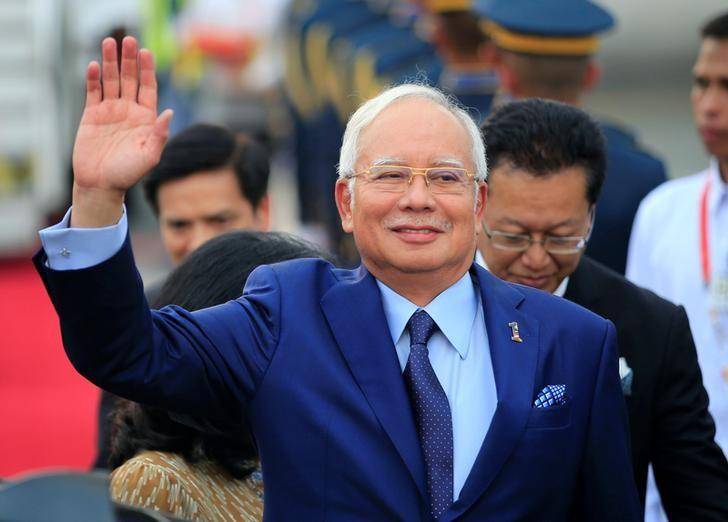MANILA - Malaysian Prime Minister Najib Razak warned on Friday that Southeast Asian countries needed to ensure their economic growth was inclusive, or risk marginalized people turning to violent extremism or even overturning political systems.
“We know that those who see no hope in their own societies are more prone to the siren calls of terrorists who can exploit their vulnerability and fill them with their lies,” Najib told an entrepreneurship event during an Association of South East Asian Nations (ASEAN) summit in Manila.
Extremism is expected to be on the agenda, with fears for Indonesia, Malaysia and the Philippines about piracy, the rising threat of Islamic State and the ease with which militants can acquire weapons and move between countries.
But the first order of the summit addressed a more pressing threat, as ASEAN called for calm from all involved in tensions on the Korean peninsula.
US President Donald Trump in an interview with Reuters said a “major, major conflict” was possible with North Korea over its missile programmes and China said the situation could slip out of control. In a rare, stand-alone statement, ASEAN urged North Korea and all parties concerned “to exercise self-restraint in order to de-escalate the tension and refrain from actions that may aggravate the situation”.
Indonesian Foreign Minister Retno Marsudi said all countries were worried. “The Korean peninsula is not that far from Southeast Asia. So whatever happens in the Korean peninsula, for sure it will affect us,” she told Reuters.
Najib lauded the success of the 50-year-old ASEAN in expanding its collective gross domestic product to about $2.7 trillion, from $87 billion four decades ago, and said the region could become the world’s fourth-largest economy.
ASEAN has 10 members: Thailand, Myanmar, Laos, Cambodia, Vietnam, Singapore, Brunei, Malaysia, Indonesia and the Philippines.
Trade integration was lagging, Najib said, and tariff removal and harmonised customs standards needed to be “vigorously pursued”.
The Malaysian leader, whose premiership has been dogged by corruption allegations, which he rejects, and is expected to call an election this year, also warned that economic disparity could be politically destabilising.
“The neglected underclass of those who felt left behind by economic growth, prosperity and globalisation can overturn elections and political systems,” he said.
Philippines Vice President Leni Robredo echoed Najib’s call for leaders to pay more attention to their poor.
“The voiceless and the powerless are now raring to be heard ... their frustrations are being felt on a global scale,” she said in a speech.
Philippine President Rodrigo Duterte will chair meetings of the ASEAN leaders on Saturday. He made it clear on Thursday that Beijing’s contentious activities in the South China Sea - a divisive topic that figures at most ASEAN meetings - would not be discussed, because it would achieve nothing.
Indonesia’s Marsudi said the South China Sea issue was discussed among her counterparts but the focus was on completing guidelines for negotiating an ASEAN-China maritime code of conduct.
Critics are sceptical and say China is trying to buy time while it develops islands it built from scratch, adding missiles and, according to some experts, the capability to deploy combat aircraft in disputed waters deep into Southeast Asia.
ASEAN secretary general, Le Luong Minh, said the code needed to be legally binding to put a stop to “unilateral actions”, because a previous commitment to play fair had been ignored.
“It’s important ... because of the complex developments in the South China Sea, especially the reclamation and militarization activities and all those unilateral actions,” Minh told Reuters in an interview. “In that context, the need for an instrument which is legally binding.”






